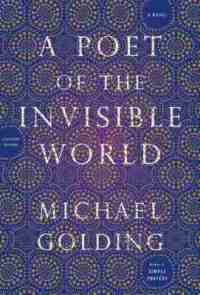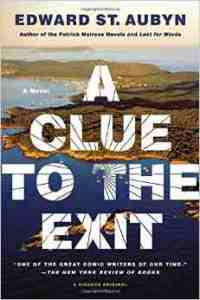
Published by Picador on October 6, 2015
Fate sends a baby with four ears flying into the arms of Habbib, who raises him in the Sufi lodge where Habbib sweeps floors. The dervishes view Nouri as blessed although Habbib conceals the child’s extra ears until Nouri’s seventh birthday. Nouri’s education begins at that point, guided by a Sufi master.
While he is devoted to his lessons, to the master, and to Habbib, Nouri prefers solitude until the arrival of a young fellow with golden hair named Vishpar. While Vishpar wishes to become a Sufi, Nouri isn’t quite sure about his own desires, although he knows they have something to do with Vishpar.
A Poet of the Invisible World is described as a “spiritual journey” in the tradition of Siddhartha. Unlike Siddhartha, who consciously pursued enlightenment, Nouri is carried along by events ... or perhaps by fate. In addition, Nouri’s quest is more about achieving self-awareness than spiritual enlightenment, although the two (at least in this novel) are clearly related: “the Sufi Way is the way of self-knowledge.”
The best part of the novel follows Nouri as he travels from place to place and encounters different cultures and philosophies. He experiences pleasure and horror. His journey has a physical as well as a spiritual element, given that Nouri is a young man who (like all young men and most older ones) has little control over the serpent between his legs. In various ways, the novel points out the connections that people of different backgrounds make due to the bonding power of emotions, even when they lack a common language.
Nouri’s path repeatedly and coincidentally intersects with that of another Sufi who is something of a nemesis, and that character’s story -- his own spiritual journey -- stands as a contrast to Nouri’s. They are both “tainted vessels” but they are tainted in different ways. I never quite understood or believed that character’s deep animosity toward Nouri, which eventually becomes the source of the novel’s (limited) dramatic tension. That struck me as both a contrivance and a relatively serious flaw.
Some of the things that happen after Nouri leaves the lodge are not well explained. Why isn’t he killed by marauders? How does he end up as a servant for the Sultan’s Right Hand? The story builds upon one contrivance after another that force the plot forward, but none of it is convincing.
To an extent, the book explores spiritual teachings and hypocrisies. To an extent, the novel is about the development of a poet and the things (like love) that inspire poetry, although it is disappointing (and a cop-out) that we see so fewof Nouri's verses. To an extent, the novel is about the series of journeys, the false and fresh starts, that comprise a life. To an extent, it is about accepting oneself and accepting others, even if the others have extra ears and are attracted to members of the same sex. The world is full of judgmental people who want to poison joy, and to an extent, the novel stands as a condemnation of narrow-mindedness, including prejudices that are based on on religious teachings.
The story is pleasant. Although it lacks the depth and complexity of Siddhartha, there is a virtue in its simplicity. I think Michael Golding sometimes tells the reader too much, particularly the tallying of all the times that Nouri feels closer to God or bonded to someone as the result of sharing an experience or a private thought. At other times, Golding doesn’t tell the reader enough. Golding often writes something like “Nouri’s understanding deepened,” prompting me to ask, “How exactly?” Much of Nouri’s progress along his spiritual path he keeps to himself, which again struck me as a serious flaw.
As much as I like the book’s message and admire Golding’s elegant prose, I can only give A Poet of the Invisible World a guarded recommendation. The plot is forced, most of the characters are insubstantial, and the messages are obvious. The novel works well enough if it is read as a lengthy parable, but it is a full-blown novel, not a parable, and there should be more to it than Golding delivers.
RECOMMENDED WITH RESERVATIONS
 Friday, October 30, 2015 at 9:34AM
Friday, October 30, 2015 at 9:34AM 



